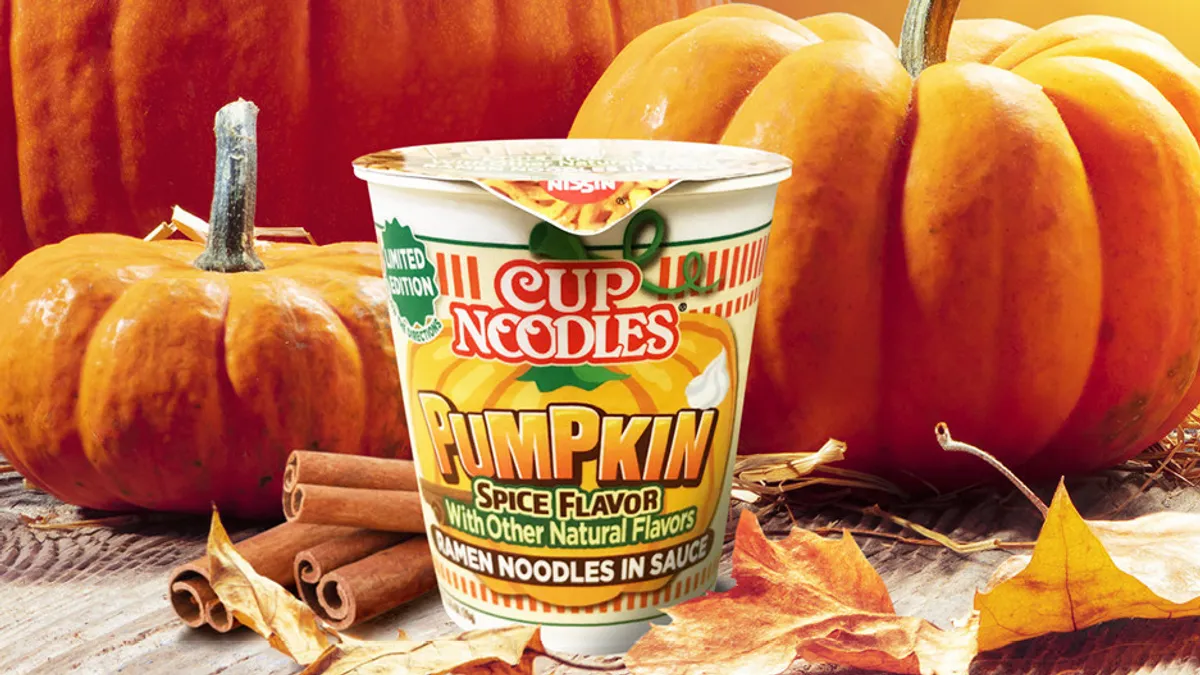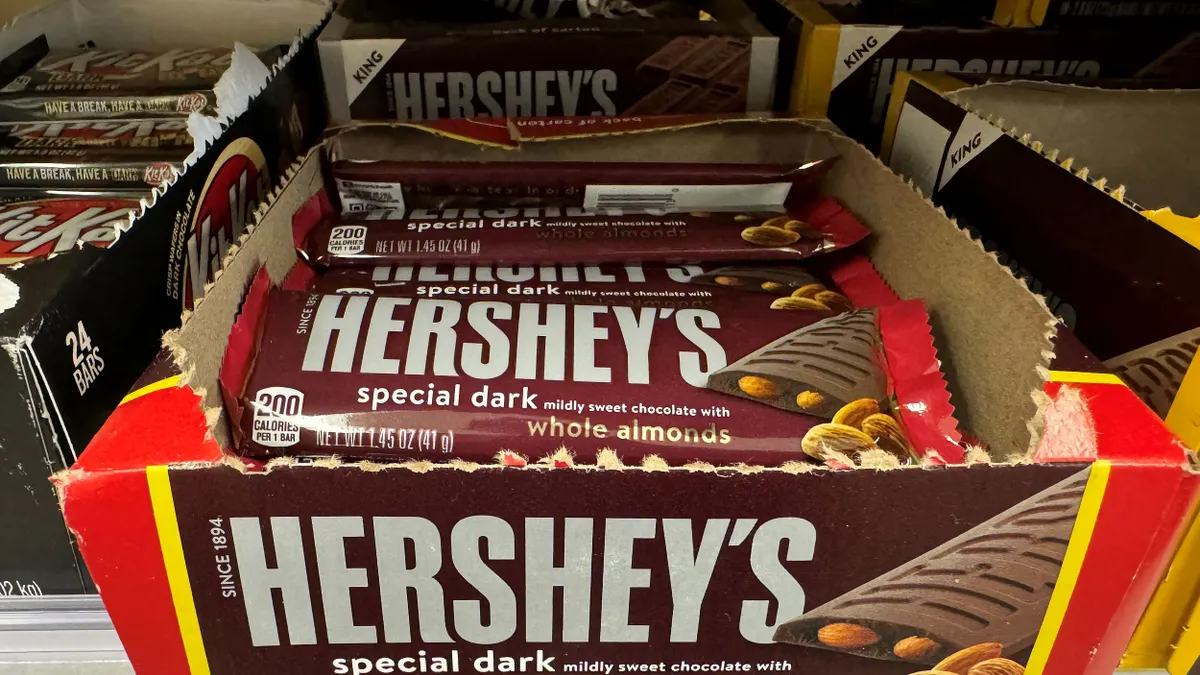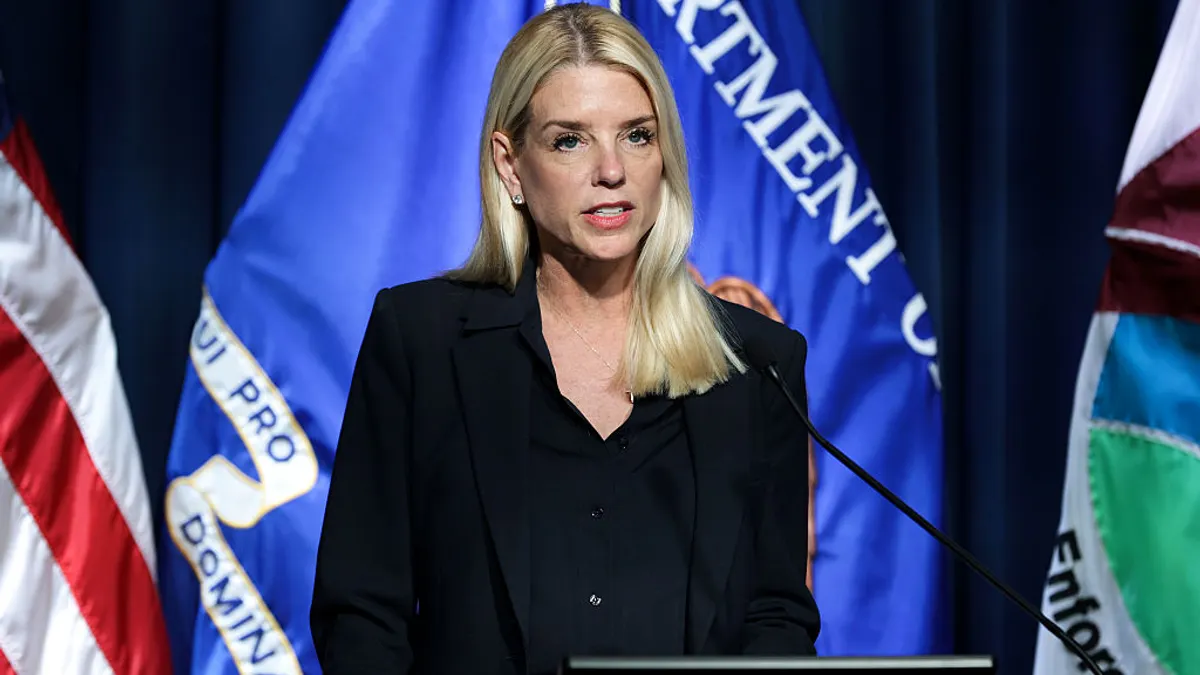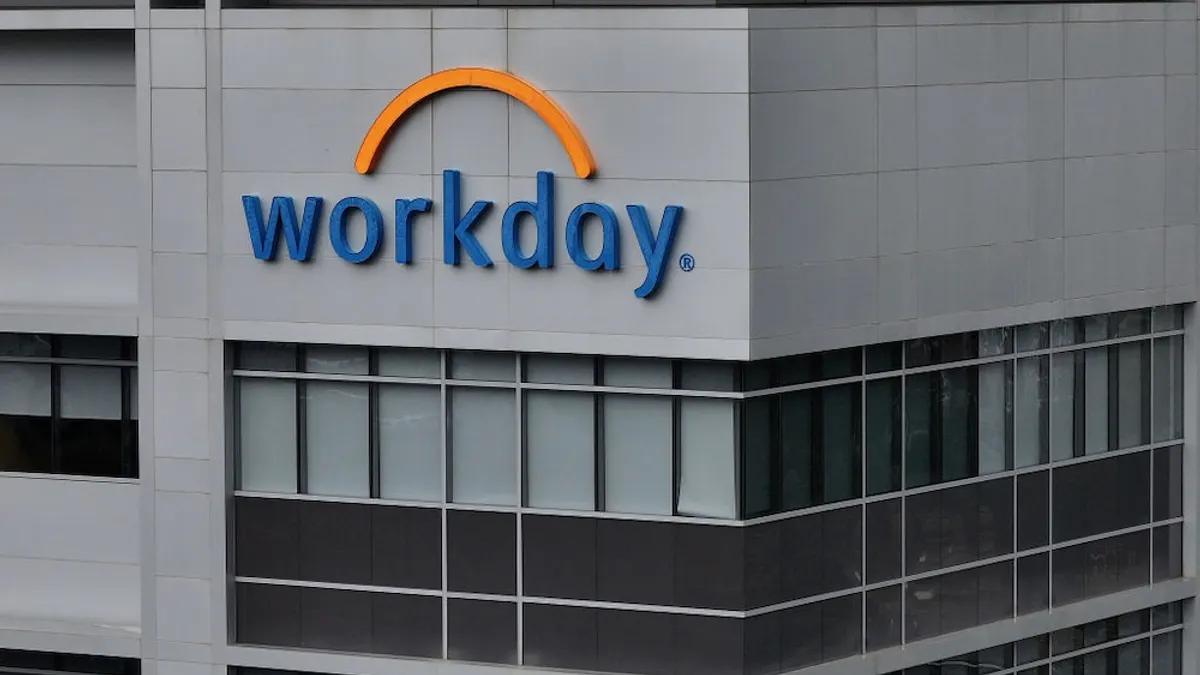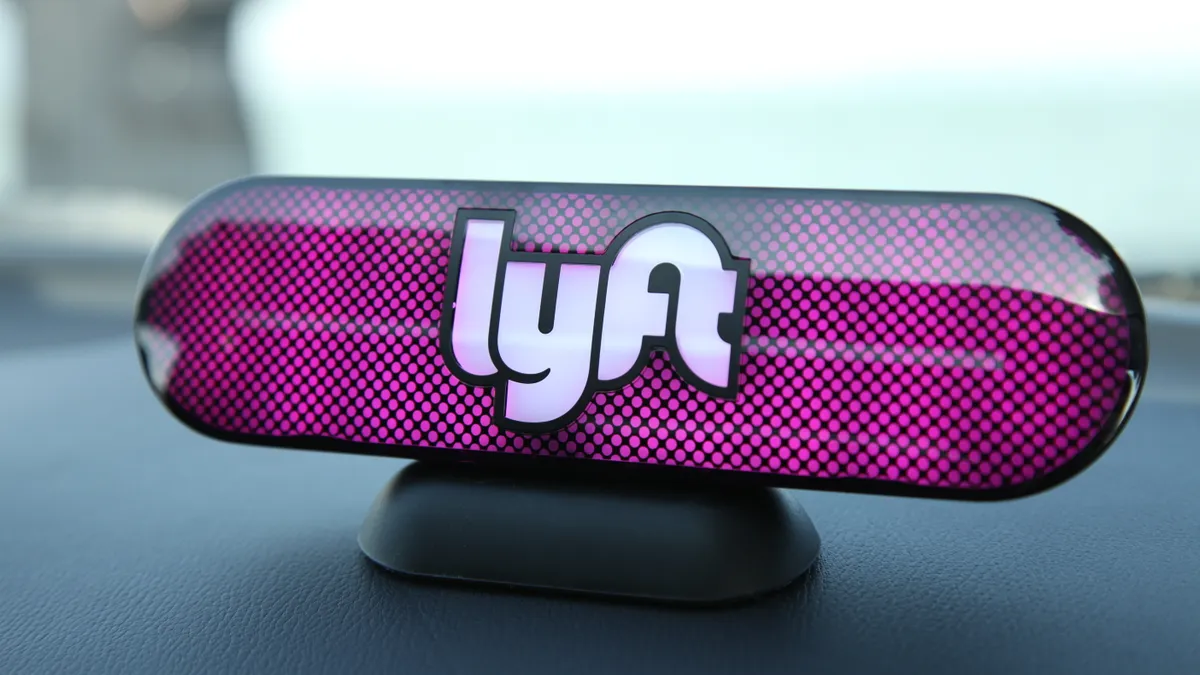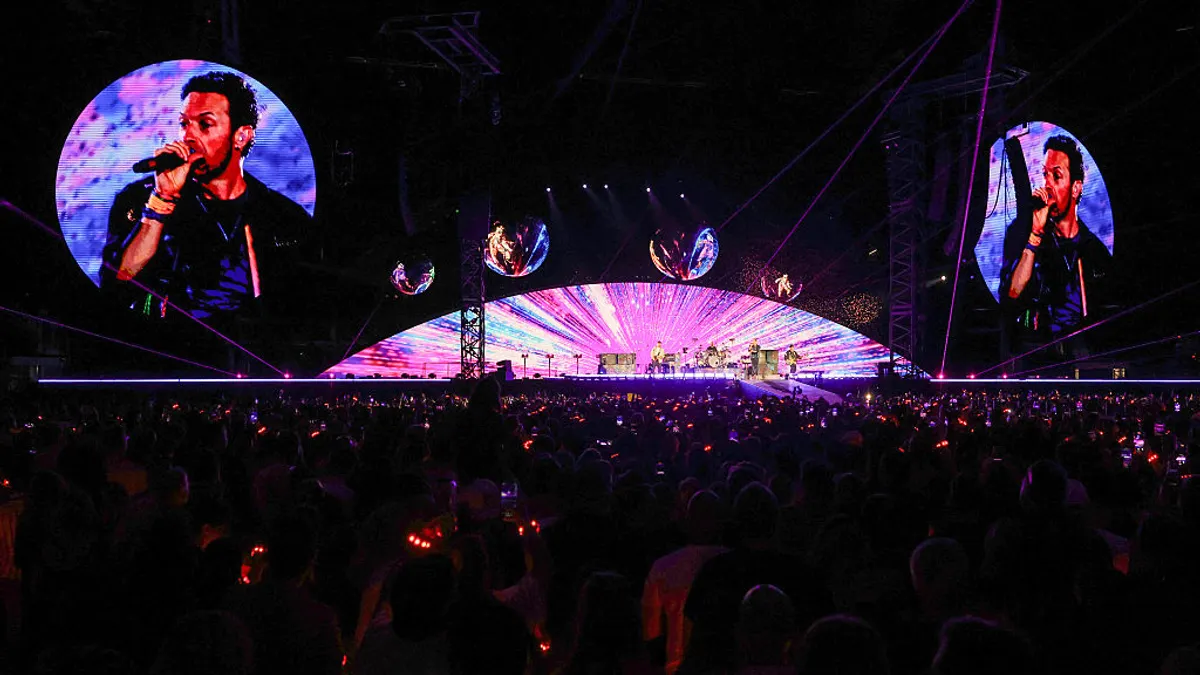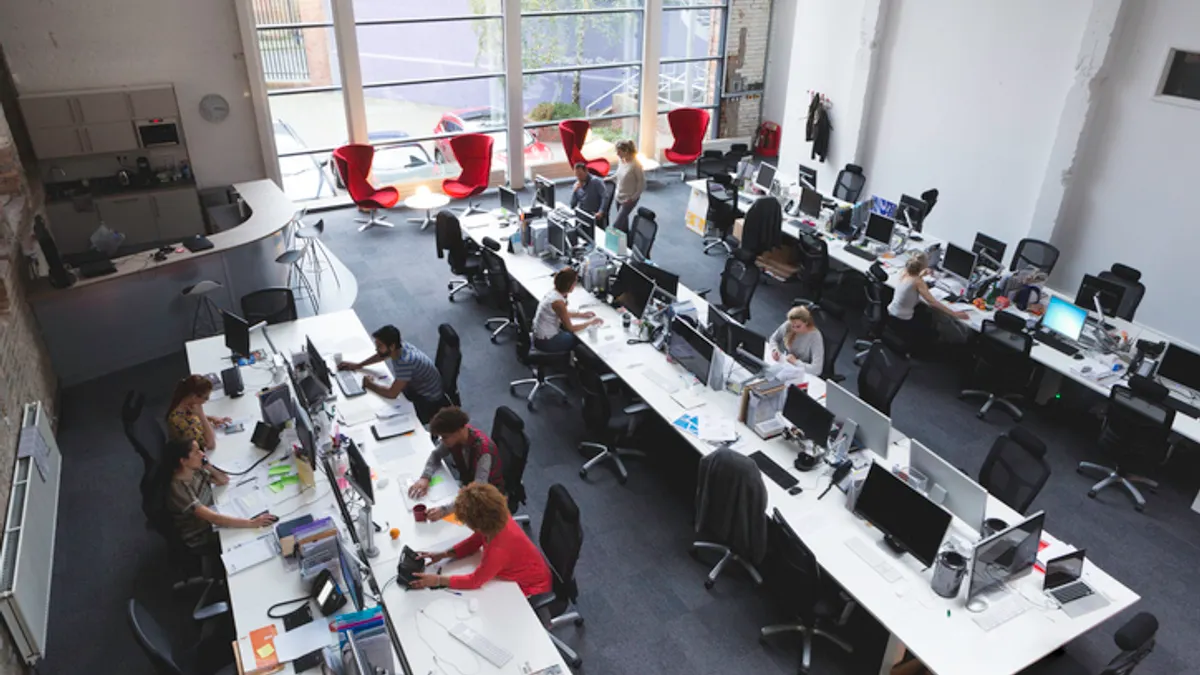Two months ago, Karen Robinson left the education space to tackle a spicy new challenge: Lead the people teams at Nissin Foods USA, maker of Top Ramen and Cup Noodles.
In her new role as CHRO, Robinson oversees Japan-based Nissin Foods’ HR programs, employee development, internal culture, training and corporate social responsibility at its U.S. operations and is in charge of setting up the hiring process for Nissin’s third U.S. manufacturing plant, set to open in Greenville County, South Carolina, next year.
She most recently worked as senior vice president of people experience at Amplify, an education technology company, and previously held HR roles at Eaton Corp. and The Boeing Co., among others.
Robinson, who is based at the company’s Los Angeles location, recently spoke to HR Dive about her transition.
Editor’s note: This interview has been edited for clarity and brevity.
HR DIVE: What has it been like in the new role?
ROBINSON: It’s been a lot of fun. I’m still very much in the listening and learning phase and am really trying to do a deep dive into the history of the company and the culture of the organization and am just meeting everyone.
We have some pretty big ideas around where we want to take the brand and the company, and so it's really been exciting just coming in and learning more about that strategy and gearing up to help hopefully drive change and support the organization from the people side of the business.
What are your goals in this position?
Nissin is really looking to drive a lot of growth … and innovation, both in our product line and in our packaging. Of course, with that comes a need for an elevated people strategy. We’re really focused on capability and capacity-building from the human capital side.
Even just looking at our plant in Greenville, it should hopefully come close to doubling our capacity for manufacturing here in the U.S. That means we’re going to be hiring hundreds of new positions and really expanding our team in a new market and a new community. One of the things we’re really focused on as part of that Greenville expansion is learning about that local community and really making sure that we’ve got the right connections with the community, so that we can not only open the new plant and be successful on the business side but also be good stewards of that community. From our perspective, we’re really looking to not only grow our business but grow our positive impact as well.
How do you merge the existing culture with this new culture?
I think it’s a balance. We've been talking about this quite a bit internally, in terms of really wanting to bring in both the history and the culture of the company and really merging both the U.S. culture and the Japanese culture but also wanting to really respect the local communities that we’re operating in. Whether that’s our plant here in Los Angeles, our facility in Pennsylvania or even this new community in South Carolina, we really want to find that right balance. We want to bring that overall culture to those locations but also bring in the local flavors and the local aspects of those communities, so that everybody feels like they’re bringing their full self into the workplace every day.
What are the emerging challenges in the HR industry?
Manufacturing, in general, has been challenging from a labor perspective for some time. That goes from things like the lack of STEM education and the ability to bring critical skills, like engineering and technology skills, into the organization, to front-line labor. It’s really hard to compete for talent, particularly at that entry level. That’s something I think manufacturing is going to continue to struggle with.
The other challenge is the evolving relationship that people have with their employer. As you have newer generations coming into the workforce, the expectations are very different than they were when I was coming into the workforce. Really balancing that out and making sure that we’re, from an HR perspective, working to create a culture, a benefits plan and development opportunities that cater to all of those different expectations is a huge challenge.
How do you handle challenges in filling the talent pipeline?
It’s just creating a great work environment that people want to share with their friends and family. Culture is such an important part of an organization. We spend so much of our lives at work. For me, I want to be around people who I can learn from and grow with and do cool things with. If you build that culture and you can share that story, you definitely have an advantage in attracting talent.
You also need to make sure that you’re listening to your employees about what their needs are, things like what employees are looking for from a benefits perspective or from an organization's community involvement. If you’re not listening as an employer to what your employees need, you’re probably going to miss the mark. Make sure that you’re constantly learning about new trends, technologies and whatever it is that your employees are asking for and being responsive to those needs.
What role does AI have in manufacturing?
There’s a lot of fear around AI potentially replacing people or replacing jobs. I tend to look at it more as a way to augment the work and really help drive down the amount of administration that most of us find not super fun anyway.
There are so many new AI tools that are coming out that really help automate the recruiting process so that recruiters can focus more on the quality of conversations, on creating a high-touch recruiting experience and making sure candidates are having a good experience and that they feel supported through that journey. I think that’s where AI really adds the most value.
In manufacturing, I think there’s so much that AI can do to help drive analytics and insights that, 20 years ago, we just didn’t have the technology available to do. Particularly in a high-volume business like ramen, that ability to turn through that much data in a very short amount of time will ultimately be a competitive advantage for a company that is able to do that.
Can you talk about your journey into HR?
When I first started my career, I honestly thought I was going to go be a consultant. I joined Boeing right out of grad school, and I fell in love with being inside an organization and really developing that deep understanding of how companies work and how people work within that kind of ecosystem. I took that initial role, which was really mostly in organizational development and change management and ultimately grew that into an HR leadership career.
I've had the privilege to be able to learn from some really amazing companies that do HR really well and have taken those learning experiences and applied them in growth organizations. I would say my last three experiences have really been in joining growth companies and helping them build out and transform their HR functions. It has been an amazing career for me and hopefully something that I’ve been able to do to impact organizations.



